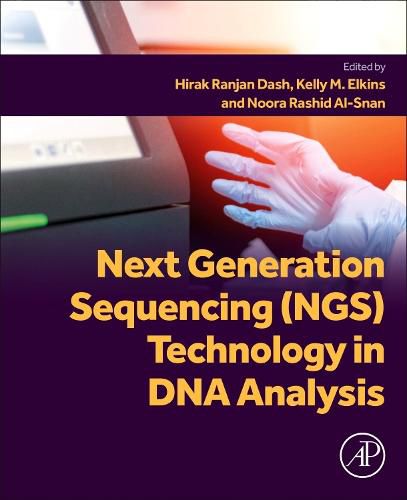Readings Newsletter
Become a Readings Member to make your shopping experience even easier.
Sign in or sign up for free!
You’re not far away from qualifying for FREE standard shipping within Australia
You’ve qualified for FREE standard shipping within Australia
The cart is loading…






Next Generation Sequencing (NGS) Technology in DNA Analysis explains and summarizes next generation sequencing (NGS) technological applications in the field of forensic DNA analysis. The book covers the transition from capillary electrophoresis (CE)-based technique to NGS platforms and the fundamentals of NGS technologies, applications, and advances. Sections provide an overview of NGS technology and forensic science, including information on processing biological samples for forensic analysis, sequence analysis, and data analysis software as well as the analysis of NGS data. The book explores the valuable applications of NGS-based forensic DNA analysis and covers the validations and interpretation guidelines of NGS workflows.
With chapter contributions from an international array of experts and the inclusion of practical case studies, this book is a useful reference for academicians and researchers in genetics, biotechnology, bioinformatics, biology, and medicine as well as forensic DNA scientists and practitioners who aim to learn, use, apply, and validate NGS-based technologies.
$9.00 standard shipping within Australia
FREE standard shipping within Australia for orders over $100.00
Express & International shipping calculated at checkout
Next Generation Sequencing (NGS) Technology in DNA Analysis explains and summarizes next generation sequencing (NGS) technological applications in the field of forensic DNA analysis. The book covers the transition from capillary electrophoresis (CE)-based technique to NGS platforms and the fundamentals of NGS technologies, applications, and advances. Sections provide an overview of NGS technology and forensic science, including information on processing biological samples for forensic analysis, sequence analysis, and data analysis software as well as the analysis of NGS data. The book explores the valuable applications of NGS-based forensic DNA analysis and covers the validations and interpretation guidelines of NGS workflows.
With chapter contributions from an international array of experts and the inclusion of practical case studies, this book is a useful reference for academicians and researchers in genetics, biotechnology, bioinformatics, biology, and medicine as well as forensic DNA scientists and practitioners who aim to learn, use, apply, and validate NGS-based technologies.